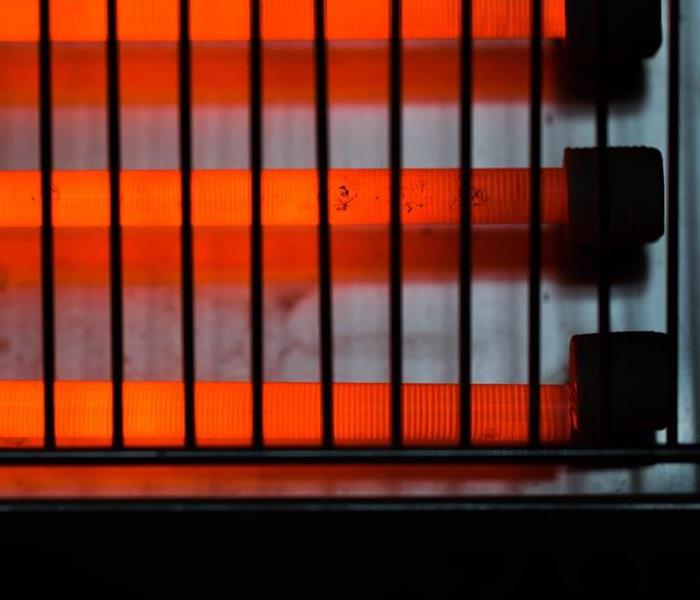Stay Warm and Safe: Heating Equipment Safety Tips
11/2/2023 (Permalink)
At SERVPRO, we've seen the aftermath of heating equipment-related incidents, which can lead to fires, carbon monoxide poisoning, and property damage. To keep your home cozy and safe, we're sharing essential heating equipment safety tips in this blog post.
- Regular Maintenance
Regular maintenance is essential for keeping your heating equipment in good working condition. Ensure that your heating system is inspected, cleaned, and serviced by a professional at least once a year. This includes furnaces, boilers, and chimneys.
- Check for Carbon Monoxide Leaks
Carbon monoxide (CO) is a colorless, odorless gas that can be emitted from heating equipment. Install CO detectors in your home, particularly in areas near heating equipment, bedrooms, and common spaces. Test these detectors regularly and replace their batteries as needed.
- Ventilation Matters
Proper ventilation is crucial for heating equipment that uses combustion. Ensure that chimneys and flues are clear of obstructions, such as nests or debris, to allow the safe escape of exhaust gases. An obstructed vent can lead to a dangerous buildup of carbon monoxide.
- Flammable Material Safety
Keep all flammable materials, such as paper, clothing, and furniture, away from heating equipment. Maintain a safe clearance distance to prevent the risk of fires. Follow the manufacturer's recommendations for the minimum clearance required.
- Space Heater Safety
If you use space heaters, exercise caution. Place them on a stable, non-flammable surface and keep them away from combustible materials. Use space heaters with an automatic shutoff feature, which turns off the unit if it tips over.
- Electrical Safety
For electric heaters, inspect cords and plugs regularly for damage. Do not overload electrical outlets with multiple heating appliances. Ensure that you're using the appropriate extension cords for the heater's power requirements.
- Maintain Smoke and Fire Alarms
Test smoke and fire alarms in your home regularly, and replace the batteries as needed. Install alarms near heating equipment, bedrooms, and common areas. These alarms can provide early warning in case of a fire.
- Chimney Cleaning
If you have a fireplace, it's essential to have the chimney cleaned and inspected annually by a professional chimney sweep. Creosote buildup and debris in the chimney can pose a fire hazard.
- Keep Combustibles at a Distance
Keep all combustibles, such as firewood, newspapers, and cleaning supplies, a safe distance from heating equipment. Avoid using the top of a furnace or stove for storage.
- Emergency Shut-Off
Know the location of the emergency shut-off switch for your heating equipment. If you suspect a problem, such as a gas leak or an equipment malfunction, use this switch to turn off the heating system and contact a professional for assistance.
- Fire Extinguisher
Have a fire extinguisher in your home and ensure that it's easily accessible. Know how to use it in case of a small fire. In the event of a larger fire, evacuate your home and call 911.
- Insulation and Sealing
Proper insulation and sealing in your home help retain heat, reducing the need to overwork heating equipment. Check for drafts around doors and windows and add insulation in your attic and walls to maintain a comfortable temperature.
Heating equipment is essential for staying warm during the colder months, but it must be used with safety in mind. By following these heating equipment safety tips, you can ensure a cozy, warm, and most importantly, safe living environment for you and your family. If you suspect a problem, or have suffered damage due to heating equipment, call SERVPRO today and our team of experts will get you back to normal tomorrow.





 24/7 Emergency Service
24/7 Emergency Service
